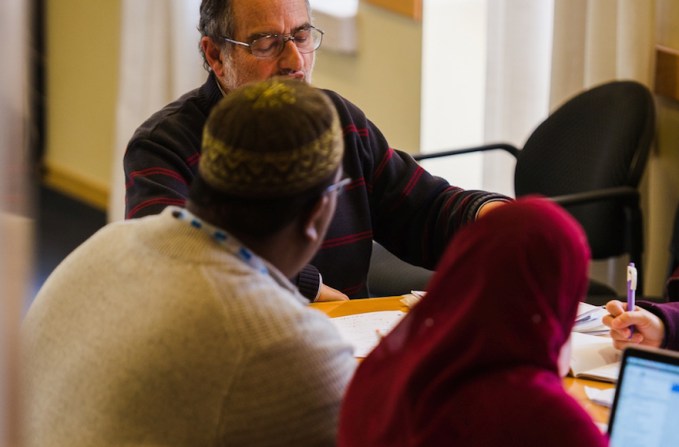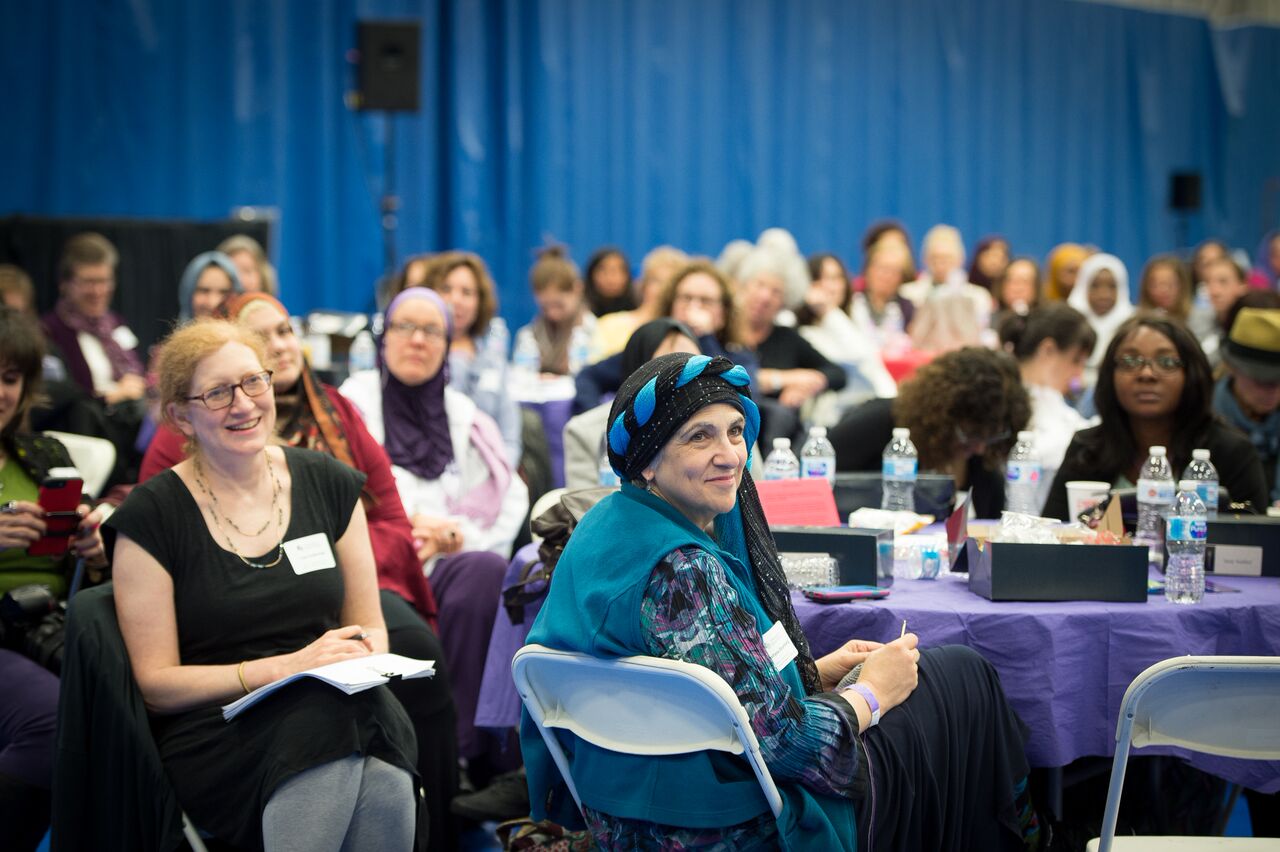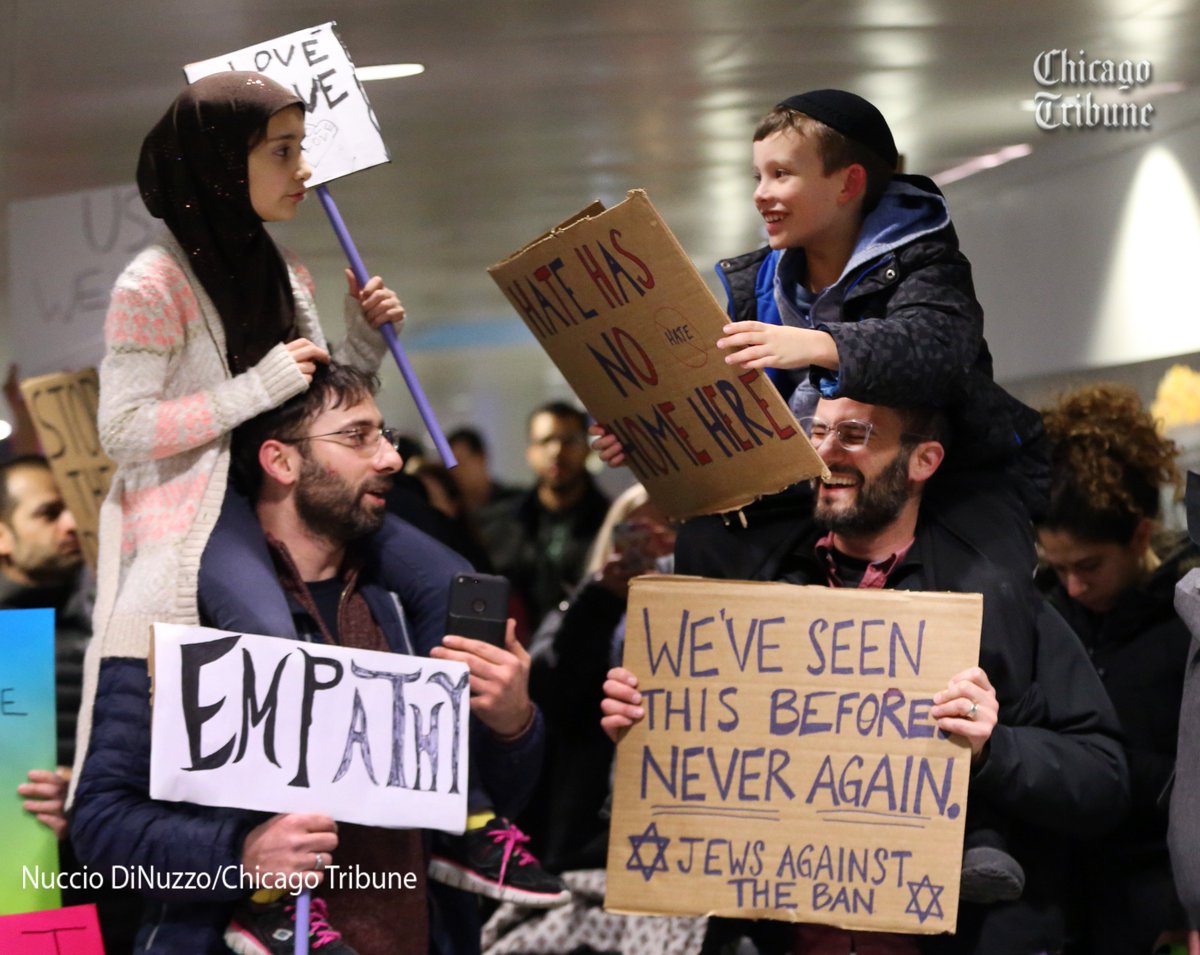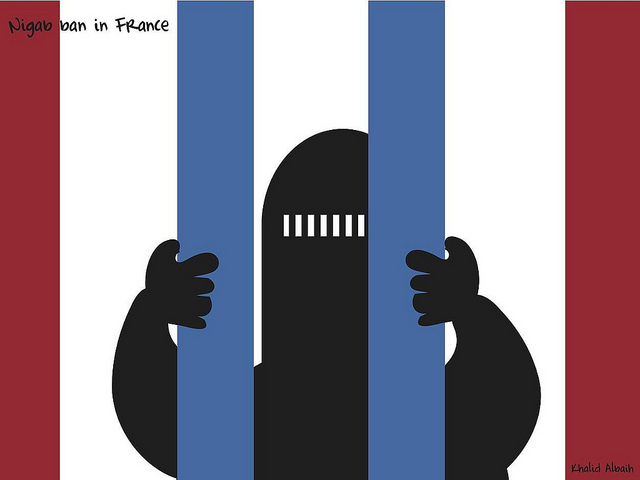This article is part of a collaborative series commissioned by altMuslimah and Jewschool to promote interfaith dialogue and understanding between Muslim and Jewish communities experiencing a rise in anti-Semitism and Islamophobia. This piece was originally published on October 17, 2017.
At a time when political upheaval and rising waves of anti-Semitism and Islamophobia are spreading fear and outrage around the globe, Jews and Muslims once again find themselves standing up in solidarity against hatred.
Historically, interfaith solidarity is very much a part of Muslim and Jewish culture, particularly when it comes to resisting egregious and inhumane acts of oppression. Still, solidarity is often fraught with danger for those that forfeit the comfort of the sidelines and choose to fight for what is morally right.
During the Civil Rights era, Jews made up half of the young people who participated in the Mississippi Freedom Summer in 1964. According to A History of Jews in America, during the 1960’s, “as many as 90 percent of the civil rights lawyers in Mississippi were Jewish.” Strategically, young, white Jews believed that putting their bodies on the front lines – and risking physical violence — would bring attention to a movement previously ignored by white culture.
These Jewish individuals put their lives and livelihoods on the line. Jewish leaders were arrested with Rev. Dr. Martin Luther King, Jr. in St. Augustine, Florida, while picketing segregated public establishments. Other Jews faced physical danger both in the South and upon their return home. And, while, at the time, there were Jews living in the South, historians estimate that 30 percent of the white volunteers who boarded the freedom buses from the North were Jewish.
Muslims, likewise, can point towards times within history where solidarity was dangerous. Muslims played an active role in sheltering Jewish refugees from Germany and Austria during the Holocaust – an event that has often been overlooked in the annals of history. Ninety percent of Poland’s Jewish population and 88 percent of Germany’s Jews were massacred in the genocide as the countries fell to the Nazi rule. But the small Muslim-majority country of Albania became an unexpected source of resistance for the Germans.
Albania’s Muslim King Zog provided 400 passports to Jewish refugees, granting them safe passage into the country while it was under Italian rule. Once there, government offices issued documents to protect Jews by publicly stating they were Muslims. Albanians sheltered them, knowing that discovery meant death.
Even as Albania fell to the German occupation, citizens refused to reveal who among them were Jews, passing many off as family members. That act of defiance put the Albanians in danger of deportation to the very same camps that the Jewish refugees were hiding from. By the end of WWII, Albania was the only European country to boast a larger Jewish population than it had prior to the war.
Even as Albania fell to the German occupation, citizens refused to reveal who among them were Jews, passing many off as family members.
In modern days, we can see a continuation of this sense of solidarity. “It needs to be stated that, historically, Muslims were taught that Jews are our brothers and sisters because they are considered people of the book,” said Amer F. Ahmed, founder and CEO of AFA Diversity Consulting. He added that recent spikes in both anti-Semitism, Islamophobia and anti-black rhetoric have just highlighted the commonalities of experience such communities are facing, fostering a renewed interest in engagement and outreach towards all marginalized groups.
But such engagement can come at a personal cost. Just a few weeks ago, the Central Reform Congregation in St. Louis opened their doors to protesters when police began utilizing tear gas and rubber bullets on demonstrates protesting the the “not guilty” verdict of the white police officer who shot and killed Anthony Lamar Smith, a black man, in 2011. 250 protesters took refuge in the Synagogue while the St. Louis Police, reportedly, threatened tear gas. #GastheSynagogue, a truly disturbing anti-Semitic and violent rallying call, began to trend on Twitter.
American Jews often find themselves with one foot in privilege and one foot mired in an increasingly anti-Semitic society.
“What do we as Jews do with our otherness that can lift our own narrative up, while simultaneously assisting others who are also marginalized and oppressed?” he asked.
It’s a question that Muslims, of all shades, confront as well. Efforts to engage in solidarity movements and outreach with other groups have raised suspicion, often making the community a target of Islamophobic attacks and accusations of spreading propaganda and sharia through such outreach. Interfaith dialogue, particularly between the Muslim and Jewish communities, can also become complicated by strong political viewpoints surrounding the issue of Israel-Palestine, creating fractures within their own societies.
Rabia Chaudry, a lawyer and advocate, participated in the controversial Muslim Leadership Initiative (MLI), which brought Muslims to Jerusalem to study Judaism through the Shalom Hartman Institute, a Jewish research and education institute. The initiative, aimed at fostering dialogue between self-identified pro-Palestinian Muslims and Zionist Jews, sparked a backlash in both religious communities, who felt it was a political Trojan horse in favor of Israeli occupation.
Chaudry said such personal attacks set back solidarity movements. “We will never move the needle on anything unless you develop relationships where the other party has to listen to you out of respect,” she said. “How long do you preach to your own choir?”
But the current dangers facing both Jewish and Muslim communities offer an opportunity to create a new dialogue, one based in historical respect and solidarity. At a time when marginalized groups, regardless of race or religion, are under attack, looking to history can help unite groups and heal the many wounds inflicted by hatred.
Shaheen Pasha is a journalist and an assistant professor of international journalism at the University of Massachusetts Amherst. Pasha is the co-editor of Mirror on the Veil: A Collection of Personal Essays on Hijab and Veiling, published by Critical, Cultural and Communications Press (2017) and is a contributor to The Dallas Morning News, New England Public Radio, USA Today, Daily Beast and Quartz, among other news outlets.
Jordyn Rozensky is a writer, a social media consultant, and an adjunct at Endicott College where she teaches photography and visual storytelling. She is currently developing Tendency To Wander with her partner Justin Hamel. The project, which includes a year-long travel campaign, shares stories and photographs from across the United States. Work can be found at www.tendencyto.com.
Image Credit





